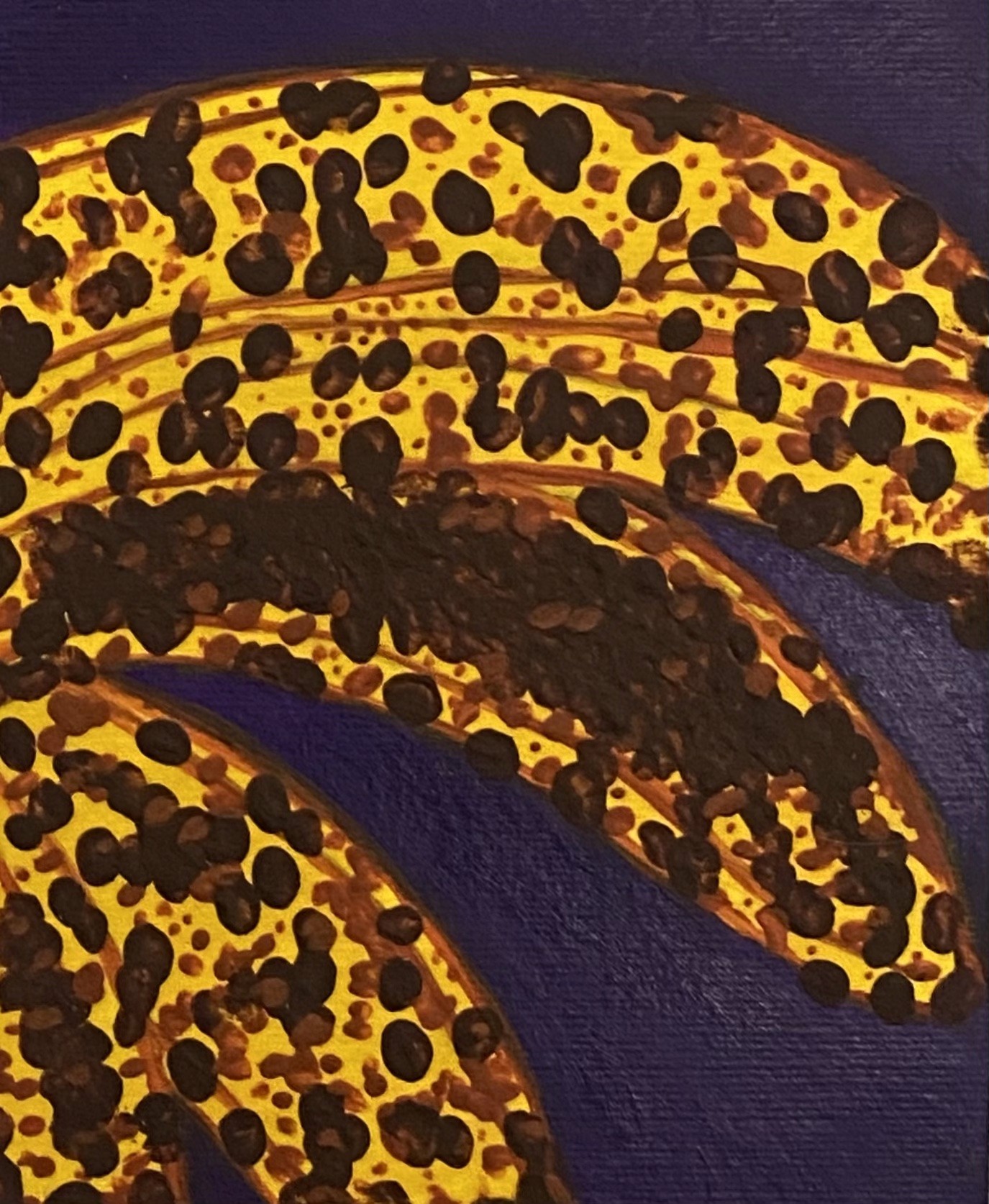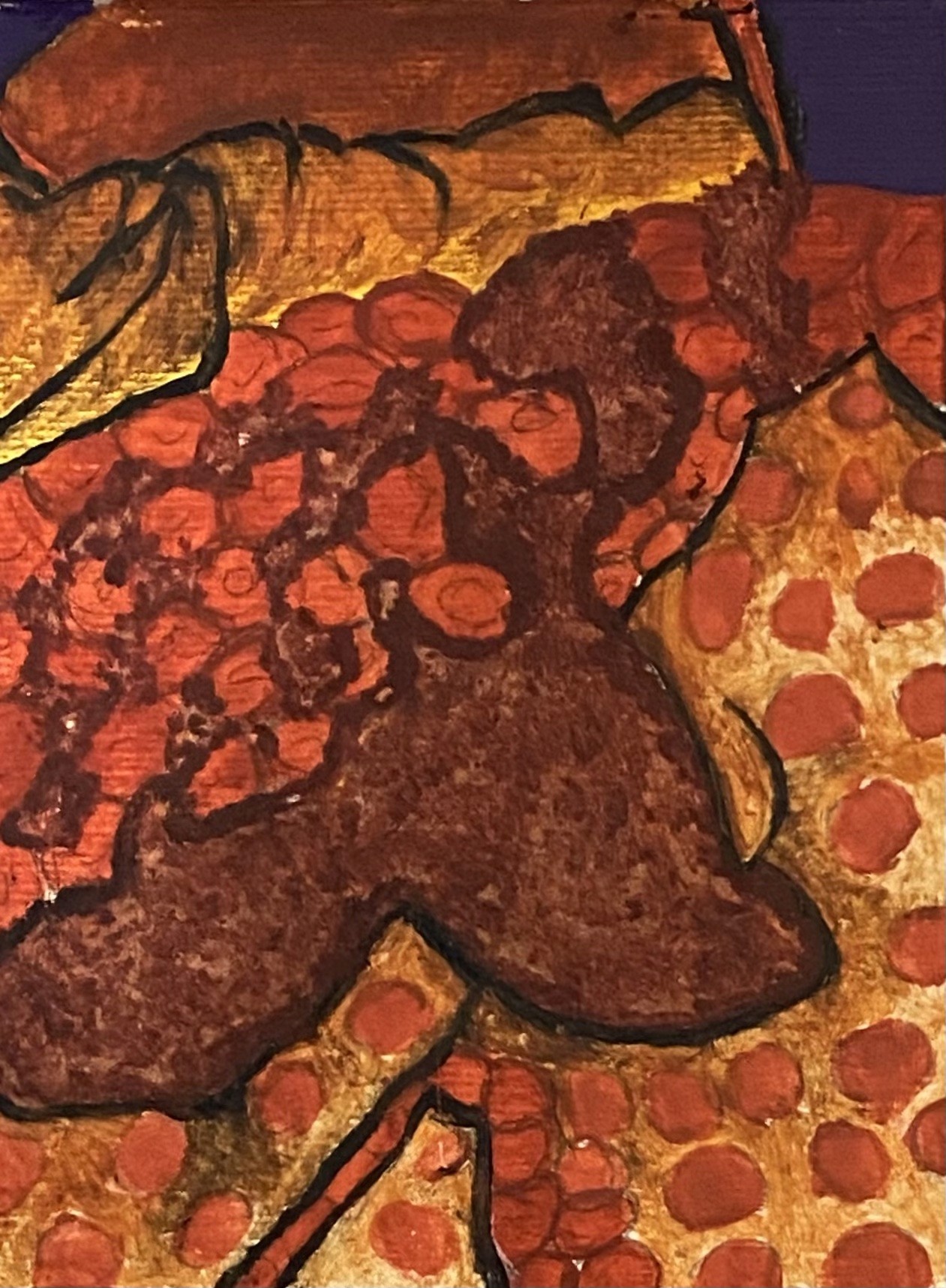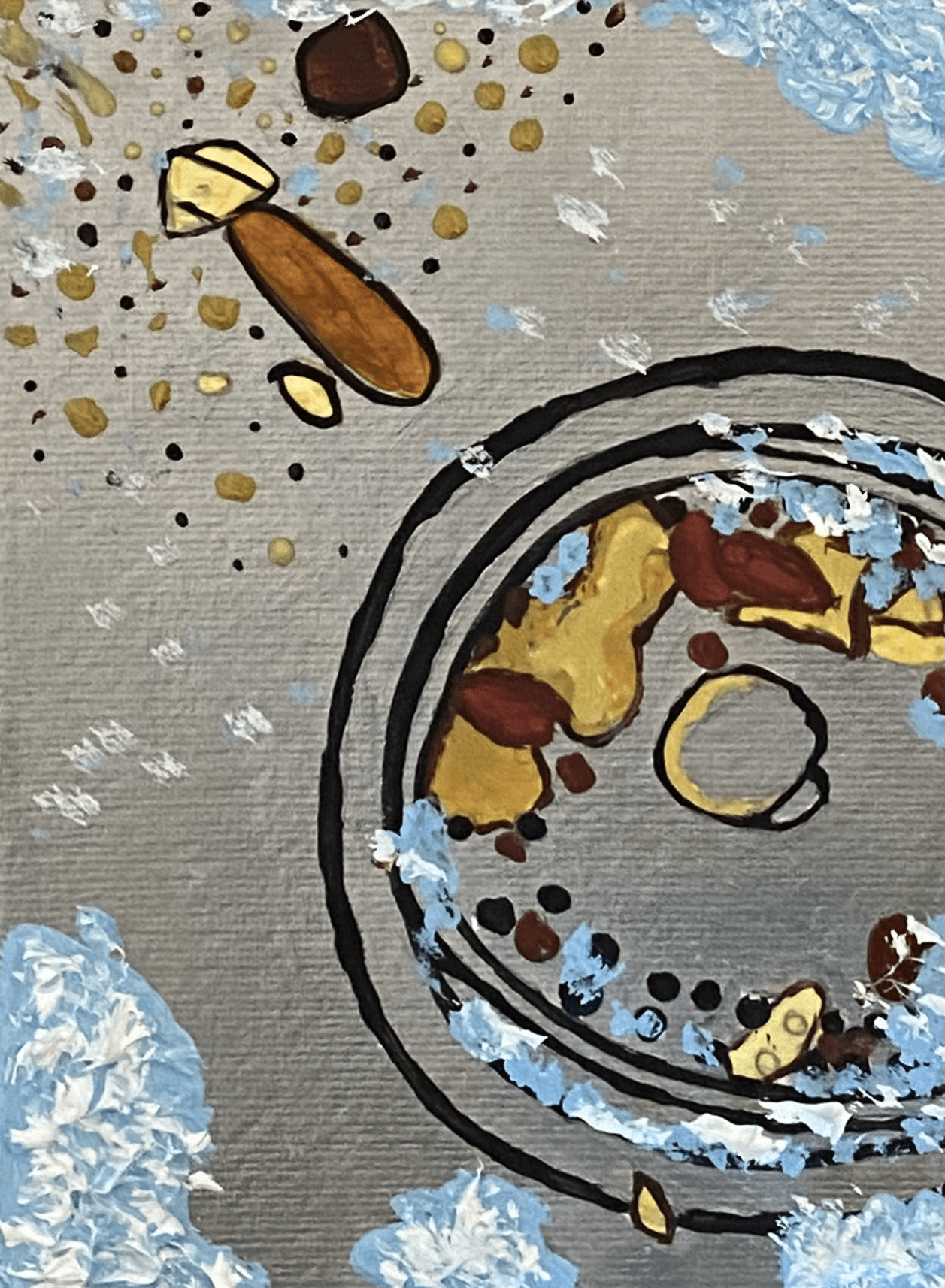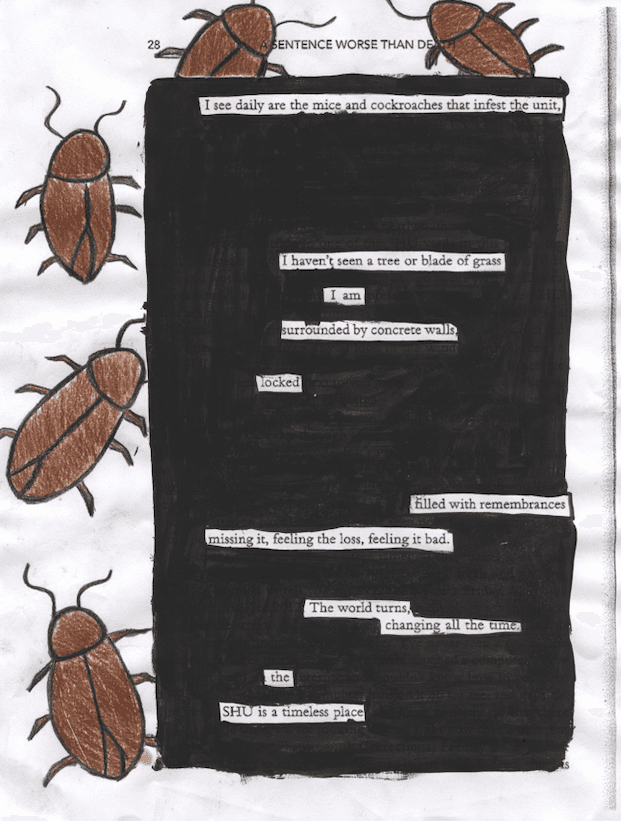Zines


Elotera (2023)
Elotera (2023)
"Elotera" is an experimental, non-linear zine and a piece of auto-fiction. Readers are taken through memories and dreams of the main character, inhabiting her universe by use of second person narration (you). Lyrical prose braids together the narrative; its central threads converge on the image of corn and its many associations to the character's family, culture, and work. In the universe of "Elotera," corn returns again and again to the character's life and her thoughts. A connection as metaphysical as physical.
"Elotera" is an experimental, non-linear zine and a piece of auto-fiction. Readers are taken through memories and dreams of the main character, inhabiting her universe by use of second person narration (you). Lyrical prose braids together the narrative; its central threads converge on the image of corn and its many associations to the character's family, culture, and work. In the universe of "Elotera," corn returns again and again to the character's life and her thoughts. A connection as metaphysical as physical.
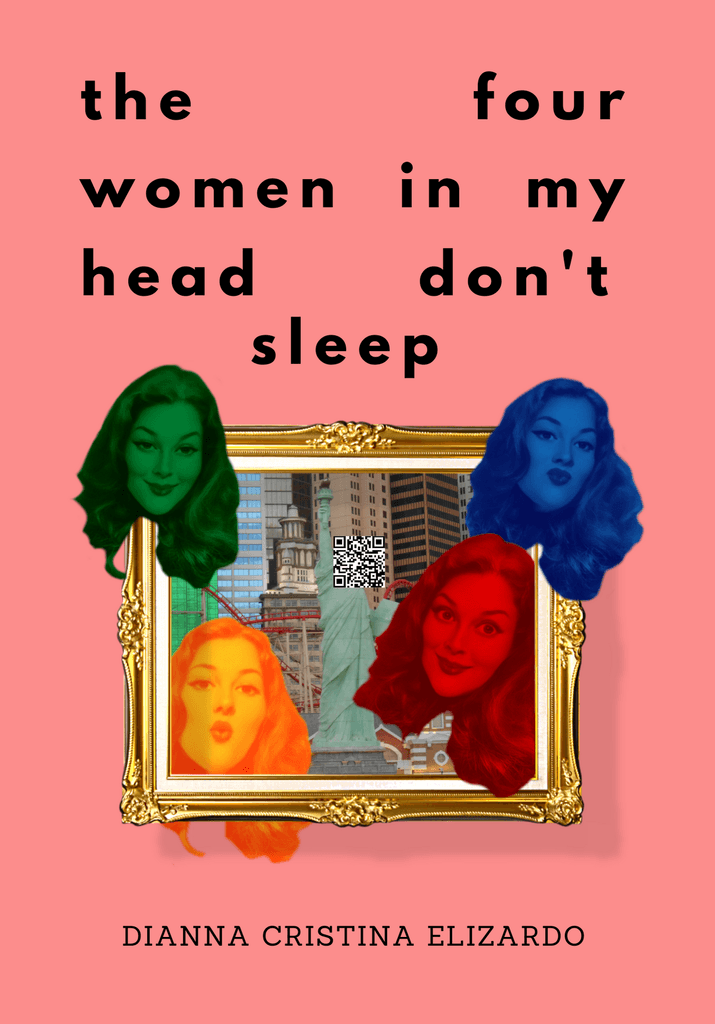

The Four Women In My Head Don't Sleep (2022)
The Four Women In My Head Don't Sleep (2022)
"The Four Women In My Head Don't Sleep," a zine made from a compilation of writing related to varied and spiraling thoughts one might have lying in bed in the dark. The visuals are digital collages leaning into the surreal and severed. Four floating heads of my likeness give faces and names to the short writing pieces they're connected to. They are both me and not me in the same way our thoughts act with their own life and persistence. Thoughts of obsession, self-doubt, alienation, brazen confidence, longing, and anger are written as though being said by the floating heads themselves. Sandwiched between these vignettes is a spread called "Produce Break," an absurd visual palette cleanser for the reader to enjoy.
The following iteration of these four women was a paper theatre show that debuted during the 21st Annual Paper Theatre Festival at Wisteria Cottage Museum in La Jolla.
Now the four women have taken over stubstack to run a monthly newsletter of the same name.
"The Four Women In My Head Don't Sleep," a zine made from a compilation of writing related to varied and spiraling thoughts one might have lying in bed in the dark. The visuals are digital collages leaning into the surreal and severed. Four floating heads of my likeness give faces and names to the short writing pieces they're connected to. They are both me and not me in the same way our thoughts act with their own life and persistence. Thoughts of obsession, self-doubt, alienation, brazen confidence, longing, and anger are written as though being said by the floating heads themselves. Sandwiched between these vignettes is a spread called "Produce Break," an absurd visual palette cleanser for the reader to enjoy.
The following iteration of these four women was a paper theatre show that debuted during the 21st Annual Paper Theatre Festival at Wisteria Cottage Museum in La Jolla.
Now the four women have taken over stubstack to run a monthly newsletter of the same name.


Whore Story Vol. 1: Greatest Hits (2018)
Whore Story Vol. 1: Greatest Hits (2018)
Many times during college I have found myself sitting across from Leian, my roommate and best friend, at a dining hall table discussing for hours the guys she’s hooked up with or been in intimate relationships with. We speak at length trying to wrap our heads around the workings of these men and the greater societal implications they represent. In this zine are open letters she wrote to them detailing her experiences with emotional labor, patriarchy, and general dissatisfaction.
Many times during college I have found myself sitting across from Leian, my roommate and best friend, at a dining hall table discussing for hours the guys she’s hooked up with or been in intimate relationships with. We speak at length trying to wrap our heads around the workings of these men and the greater societal implications they represent. In this zine are open letters she wrote to them detailing her experiences with emotional labor, patriarchy, and general dissatisfaction.
Graphic Design + Visual Art
Articles


Audre Lorde’s Resonances Then And Now
Audre Lorde was, and still is, a significant voice who advocated for the liberation of the oppressed. She was a Black lesbian feminist, a mother, a poet, and a socialist. Her words echo during our current moment of civil unrest and Black death. She has been quoted for her most famous essay, “The Master’s Tools Will Never Dismantle the Master’s House” (1979). Her words still ring true today
Image: K. Kendall, CC BY 2.0 <https://creativecommons.org/licenses/by/2.0>, via Wikimedia Commons
Audre Lorde was, and still is, a significant voice who advocated for the liberation of the oppressed. She was a Black lesbian feminist, a mother, a poet, and a socialist. Her words echo during our current moment of civil unrest and Black death. She has been quoted for her most famous essay, “The Master’s Tools Will Never Dismantle the Master’s House” (1979). Her words still ring true today
Image: K. Kendall, CC BY 2.0 <https://creativecommons.org/licenses/by/2.0>, via Wikimedia Commons
Read More


Don't Leave Sex Workers Behind During COVID
Across the globe, marginalized communities have been greatly impacted by the COVID-19 pandemic. The fact of the matter is, people cannot afford to completely alter their lives according to CDC guidelines. People need to work, even if it means working closely with others or using public transit to get to work. Sex workers face these same issues.
Across the globe, marginalized communities have been greatly impacted by the COVID-19 pandemic. The fact of the matter is, people cannot afford to completely alter their lives according to CDC guidelines. People need to work, even if it means working closely with others or using public transit to get to work. Sex workers face these same issues.
Read More
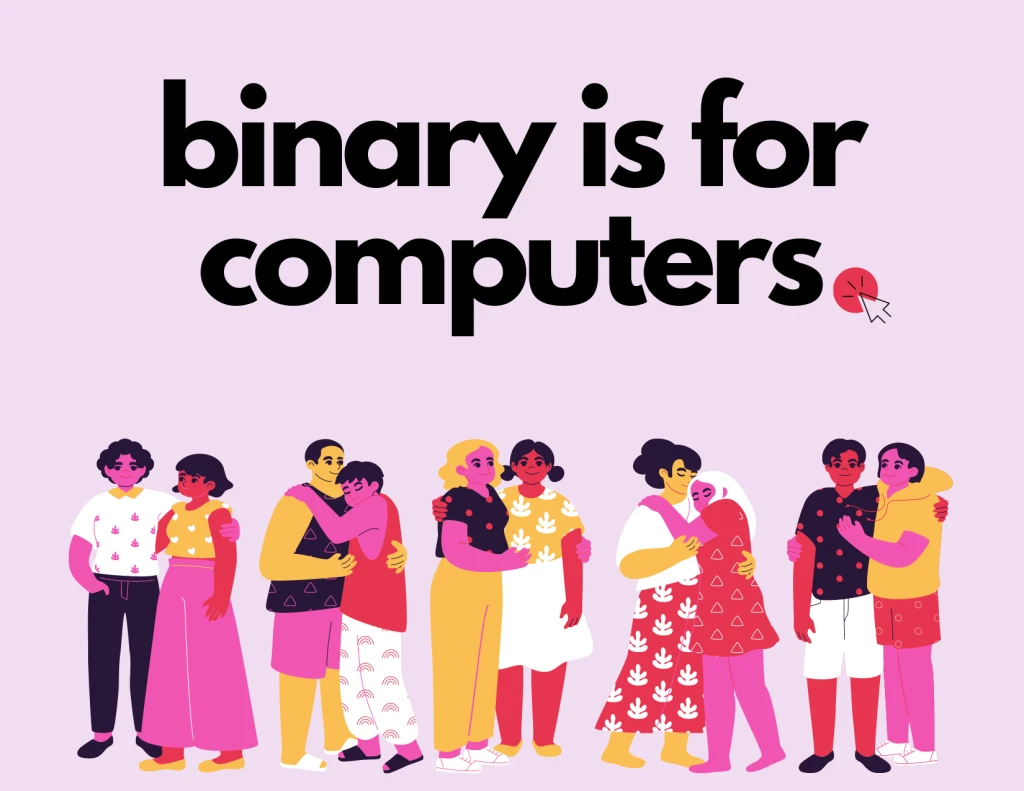

“Lesbians Are Not Women”: Unpacking The Phrase
Monique Wittig, French author, and feminist theorist coined the famous phrase “Lesbians are not women” in her essay “The Straight Mind” (1980). Since then, the idea has provoked confusion and surprise. I wish to unpack the phrase and the theories behind it. Drawing on Wittig’s and other scholar’s work around sex, gender, and sexuality in relation to lesbians.
Monique Wittig, French author, and feminist theorist coined the famous phrase “Lesbians are not women” in her essay “The Straight Mind” (1980). Since then, the idea has provoked confusion and surprise. I wish to unpack the phrase and the theories behind it. Drawing on Wittig’s and other scholar’s work around sex, gender, and sexuality in relation to lesbians.
Read More


Lessons On Touch In And Before Quarantine
Face masks and social distancing are the new normal. As is the absence or the restriction of touch. Fully accepting a lack of control over what happens in the world is a continuous effort. But it also comes with the balance of understanding what is in your control.
Face masks and social distancing are the new normal. As is the absence or the restriction of touch. Fully accepting a lack of control over what happens in the world is a continuous effort. But it also comes with the balance of understanding what is in your control.
Read More


Fat, Fly, and Brown Poet Yesika Salgado
In my second year of college, my roommate had a vibrant teal poster with a lemon tree in bloom and the word ‘Tesoro’ nestled in its leaves. A ripe lemon dangled from one of the branches and drew my attention to a name I recognized. Yesika Salgado.
In my second year of college, my roommate had a vibrant teal poster with a lemon tree in bloom and the word ‘Tesoro’ nestled in its leaves. A ripe lemon dangled from one of the branches and drew my attention to a name I recognized. Yesika Salgado.
Read More
the four women in my head don't sleep
the four women in my head don't sleep
This monthly newsletter is inspired by a collage, zine, and paper theatre show of the same name. Projects which sought to give homes to writing otherwise collecting dust and experiment with ways of sharing the deeper parts of oneself. You can support this newsletter by becoming a subscriber, making a donation (https://ko-fi.com/diannaelizardo), or committing to one of our pledge tiers on kofi (ko-fi.com/diannaelizardo/tiers).
This monthly newsletter is inspired by a collage, zine, and paper theatre show of the same name. Projects which sought to give homes to writing otherwise collecting dust and experiment with ways of sharing the deeper parts of oneself. You can support this newsletter by becoming a subscriber, making a donation (https://ko-fi.com/diannaelizardo), or committing to one of our pledge tiers on kofi (ko-fi.com/diannaelizardo/tiers).
Dianna Cristina Elizardo
San Diego




